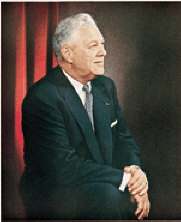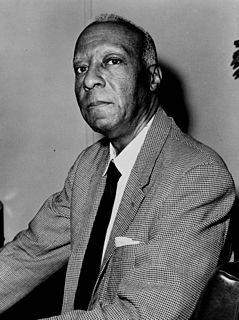A Quote by Jean de la Bruyere
Nothing more clearly shows how little God esteems his gift to men of wealth, money, position and other worldly goods, than the way he distributes these, and the sort of men who are most amply provided with them.
Related Quotes
Business in a certain sort of men is a mark of understanding, and they are honored for it. Their souls seek repose in agitation, as children do by being rocked in a cradle. They may pronounce themselves as serviceable to their friends as troublesome to themselves. No one distributes his money to others, but every one therein distributes his time and his life. There is nothing of which we are so prodigal as of those two things, of which to be thrifty would be both commendable and useful.
Let us consider the actual, worldly Jew - not the Sabbath Jew, as Bauer does, but the everyday Jew. ... What is the worldly religion of the Jew? Huckstering. What is his worldly God? Money. Money is the jealous god of Israel, in face of which no other god may exist. Money degrades all the gods of man - and turns them into commodities. The bill of exchange is the real god of the Jew. His god is only an illusory bill of exchange. The chimerical nationality of the Jew is the nationality of the merchant, of the man of money in general.
We must not cast away riches which can benefit our neighbor. Possessions were made to be possessed; goods are called goods because they do good, and they have been provided by God for the good of men: they are at hand and serve as the material, the instruments for a good use in the hand of him who knows how to use them.
It is certain that the greatest poets, orators, statesmen, and historians, men of the most brilliant and imposing talents, have labored as hard, if not harder, than day laborers; and that the most obvious reason why they have been superior to other men is that they have taken more pains than other men.
Man is the same today that he has always been. He is a rebel against God. He may, in some generations, hide his rebellion a little more carefully than at other times, but there is no change in his heart. The men who builded the city against God back in the days of Babylon had the same hatred as that which possessed the men who nailed the Lord Jesus Christ to the cross.
Men of prayer, before anything else, are indispensable to the furtherance of the kingdom of God on earth. No other sort will fit in the scheme or do the deed. Men, great and influential in other things but small in prayer, cannot do the work Almighty God has set out for His Church to do in this, His world.
Its big men are mostly little men with fancy offices and a lot of money. A great many of them are stupid little men, with reach-me-down brains, small-town arrogance and a sort of animal knack of smelling out the taste of the stupidest part of the public. They have played in luck so long that they have come to mistake luck for enlightenment." - on Hollywood
Many people fear nothing more terribly than to take a position which stands out sharply and clearly from the prevailing opinion. The tendency of most is to adopt a view that is so ambiguous that it will include everything and so popular that it will include everybody. Not a few men who cherish lofty and noble ideals hide them under a bushel for fear of being called different.
We should realize that, if [Socrates] demanded that the wisest men should rule, he clearly stressed that he did not mean the learned men; in fact, he was skeptical of all professional learnedness, whether it was that of the philosophers or of the learned men of his own generation, the Sophists. The wisdom he meant was of a different kind. It was simply the realization: how little do I know! Those who did not know this, he taught, knew nothing at all. This is the true scientific spirit.
When a miser contents himself with giving nothing, and saving what he has got, and is in other respects guilty of no injustice, he is, perhaps, of all bad men the least injurious to society; the evil he does is properly nothing more than the omission of the good he might do. If, of all the vices, avarice is the most generally detested, it is the effect of an avidity common to all men; it is because men hate those from whom they can expect nothing. The greedy misers rail at sordid misers.






































